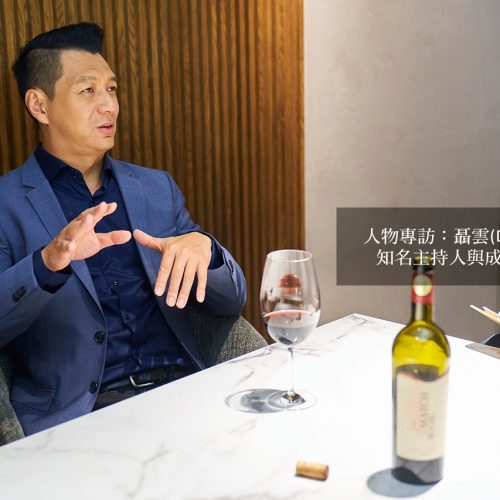人物專訪:韓偉醫師-台灣運動醫學發展的開拓者Interview with Dr. David Hang, Sports Medicine Orthopedic Surgeon
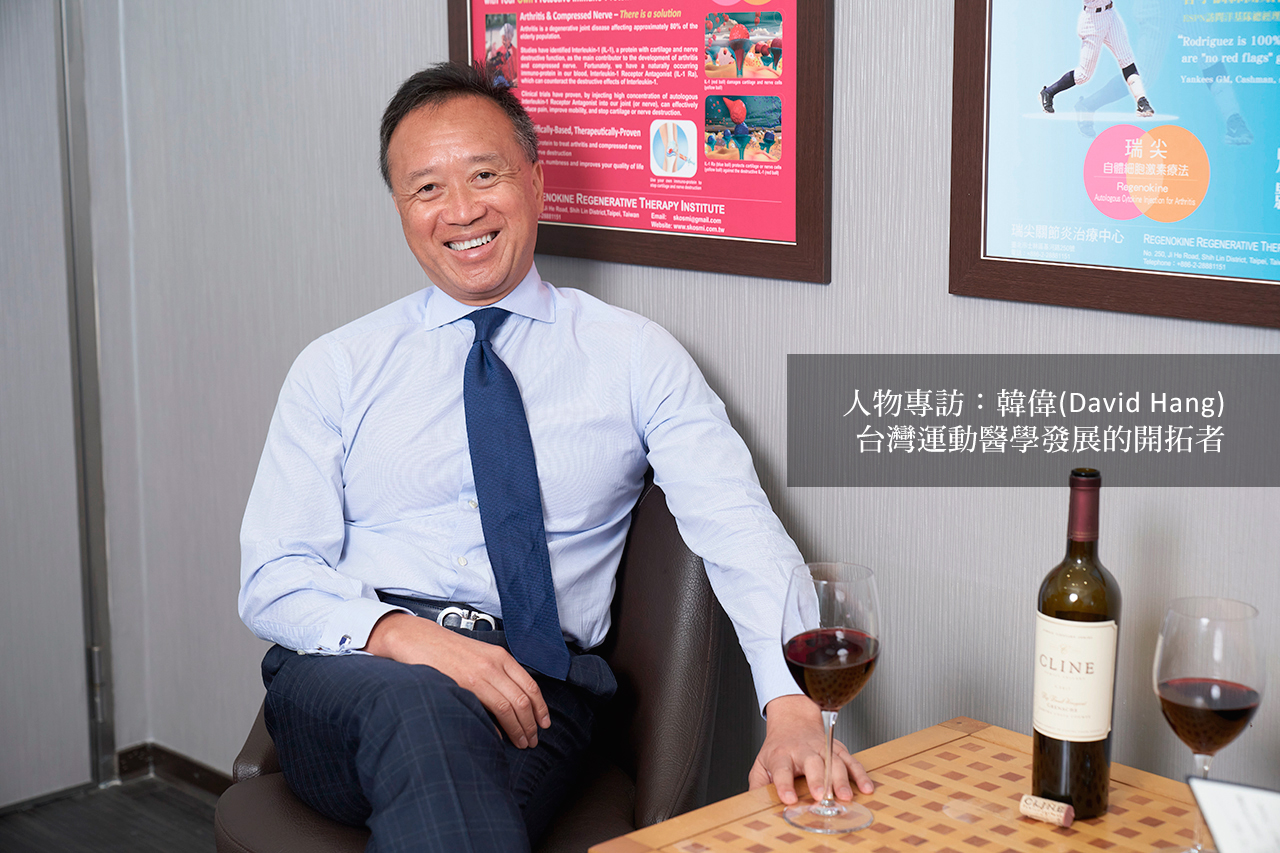
台灣運動醫學發展的開拓者
毫無疑問,任何認真從事運動的人,都有機會去位於新光醫院和士林夜市附近的新光骨科運動醫學中心,獲得他們的照顧和關注。我與骨科運動醫學中心的創始人兼院長韓偉教授一起坐下來,了解他的生活以及他如何成為台灣骨科和運動醫學領域的先驅。我們立即開始對韓教授進行有趣的採訪。
“請描述您的童年和青春期。您是如何決定當醫生的?”
大衛 (David) 出生於台灣,家族五代都是醫師和牧師。大衛提到,雖然他的家族主要由醫師組成,但他的家族也與長老教會的傳教士保持著緊密的關係。
因此,在每一代人中,也有幾位家庭成員成為牧師。大衛有兩個弟弟,他們是美國的牙醫。 1974年,David的父親韓毅雄教授 (國立台灣大學醫院的骨科主任) 是第一個接受美國俄亥俄州克利夫蘭市凱斯西儲大學 (Case Western Reserve University) 骨科生物力學專科訓練的亞洲骨科醫生。而凱斯西儲大學是人工關節領域最先進的骨科機構之一。大衛也與家人一起搬到了俄亥俄州的克利夫蘭,然後又搬到了華盛頓與西雅圖。他的父親在華盛頓大學接受運動醫學專科訓練後,於1976年返回台北。
David在台北的多米尼加學校 (Dominican School) 讀初中,然後回到美國,在西雅圖完成了高中。他於華盛頓大學醫學院畢業後,在伊利諾伊州芝加哥的Rush 長老會聖盧克醫學中心 (Rush Presbyterian St. Luke’s Medical Center) 接受骨科住院醫師實習訓練。Rush學醫中心也是美國關節置換手術領域的頂級醫院之一。在芝加哥接受培訓之後,他前往加州大學洛杉磯分校 (UCLA) 繼續接受運動醫學和關節鏡手術次專科訓練,除了成為關節鏡手術的專家,也是在台唯一擔任過洛杉磯大學的運動員隨隊醫師。並在洛杉磯建立了成功的骨科醫療診所。
David在年輕時就認為,如果他不打算當醫生,他會想到成為一名太空人,因為這看起來很有趣,令人興奮;或者是當一位外交官,代表國家工作,並有機會與其他國家的人互動。對我們來說幸運的是,David選擇遵循他家人的醫療傳統!
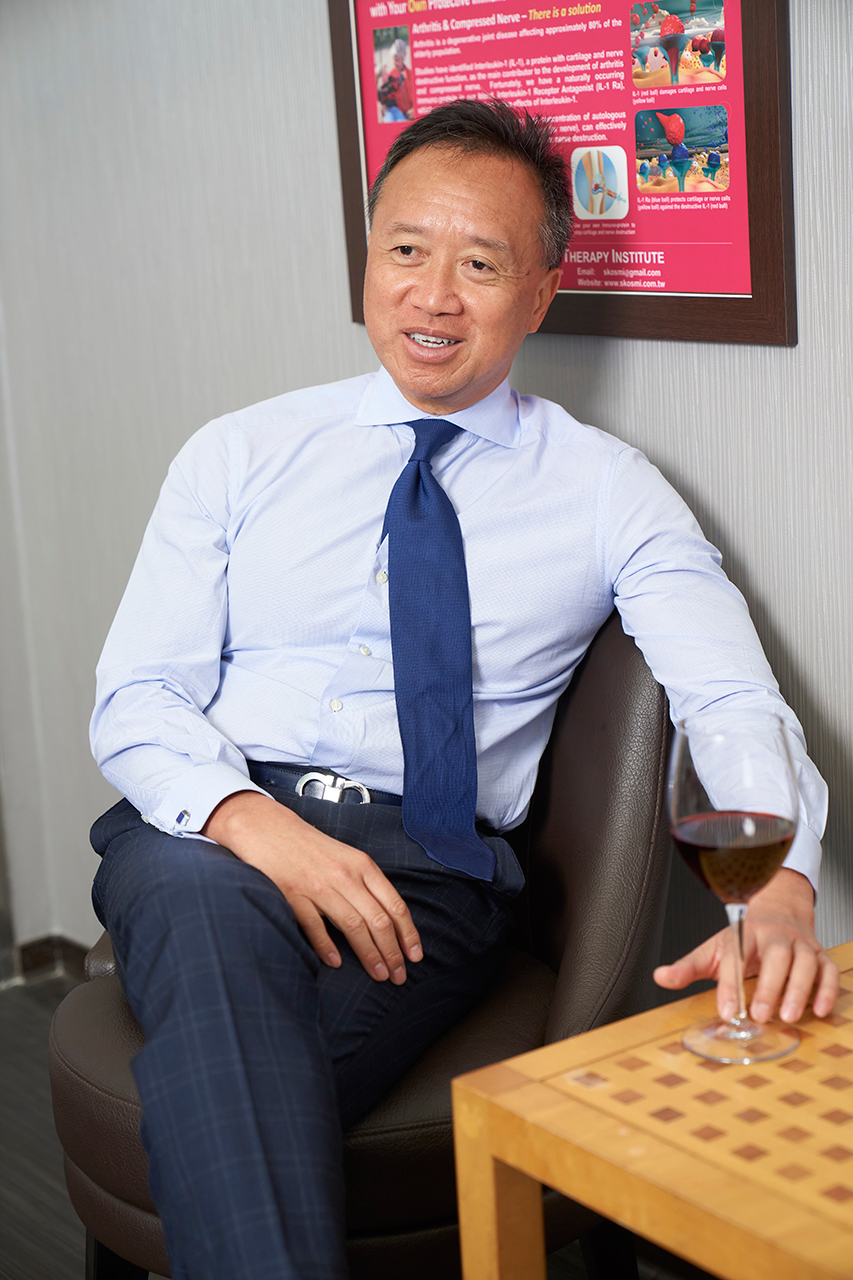
“您為什麼決定返回台灣?”
David回到台灣有兩個原因。首先,應新光醫院老闆吳東進先生的邀請,大衛被問到是否可以返回台北與新光醫院合作,在台北建立世界一流的“骨科運動醫學中心”。大衛說,這對他來說是一個巨大的挑戰,因為他已經在美國建立了非常成功的骨科診所。而回台後,除了他的工作時間急劇增加,並且考了兩次後才通過了台灣醫師執照 (因為他不得不重新學習所有相關的中文醫學術語)。這表明他在實現目標方面的奉獻精神和毅力。第二個原因會使任何中國家庭感到自豪,他覺得自己是家庭中的大兒子,他想回國照顧年邁的父母,這是執行中華文化孝道表現。
“您在新光骨科運動醫學研究所和台灣其他運動醫學方面取得了哪些主要成就?”
David成立新光骨科運動醫學中心的目標,是創建一個可以提供完整且有效的骨科醫療的骨科運動醫學中心,其水平等於或優於UCLA運動醫學中心的標準。現在,這醫學中心配備了設備齊全的設施,其中包括健身房、物理治療室、
高壓氧療法和水療中心 (游泳池)。骨科運動醫學中心,專注於骨折治療、關節炎治療、關節鏡手術、再生醫學、運動傷害和人工關節置換手術。David說,他治療患者的關鍵 (基於骨科運動醫學原理) 是通過科學驗證的骨科療法、復健和日常康復運動來加快康復時間。並採用最先進,侵入性最小的療治 (例如關節鏡手術) 以減少疼痛並促進受損部位的完全康復,以便運動員或病患可以恢復到接近100% 的復原 (甚至可以比受傷前的狀態還好!)。David強調 1) 正確的診斷、2) 有效的治療和復健及3) 復原後的體能調整 (重新訓練韌帶,肌腱,肌肉和神經) 的重要性,因此患者可以在患處重新達到最大的力量,敏捷性和柔韌性。
David獲得最大的成就感時是當運動員或患者受傷時,且這種受傷被診斷為“無希望”的類別,他能夠提供有效且完整的治療方案 (也可能包括手術),使這個人擺脫抑鬱症,並使他或她走上完全康復之路。
David是Orthokine (Regenokine) 療法的資深顧問 (也是發明此療法德國醫師Peter Wehling教授的合夥人,他就是小飛俠Kobe Bryant的醫生),而新光骨科運動醫學中心也是亞洲唯一提供Regenokine療法的中心。Regenokine是一種革命性的療法,利用人體自己的免疫蛋白來阻止軟骨和神經壞死以及韌帶,肌肉和肌腱組織的再生。這種療法不僅幫助了 Kobe和教宗保羅二世這樣的患者,而且幫助了亞洲無數的患者。
此外,David 還幫助成立了台灣防護員協會及其執照審查制度。他也一直參與中華奧會運動禁藥防制委員會工作。
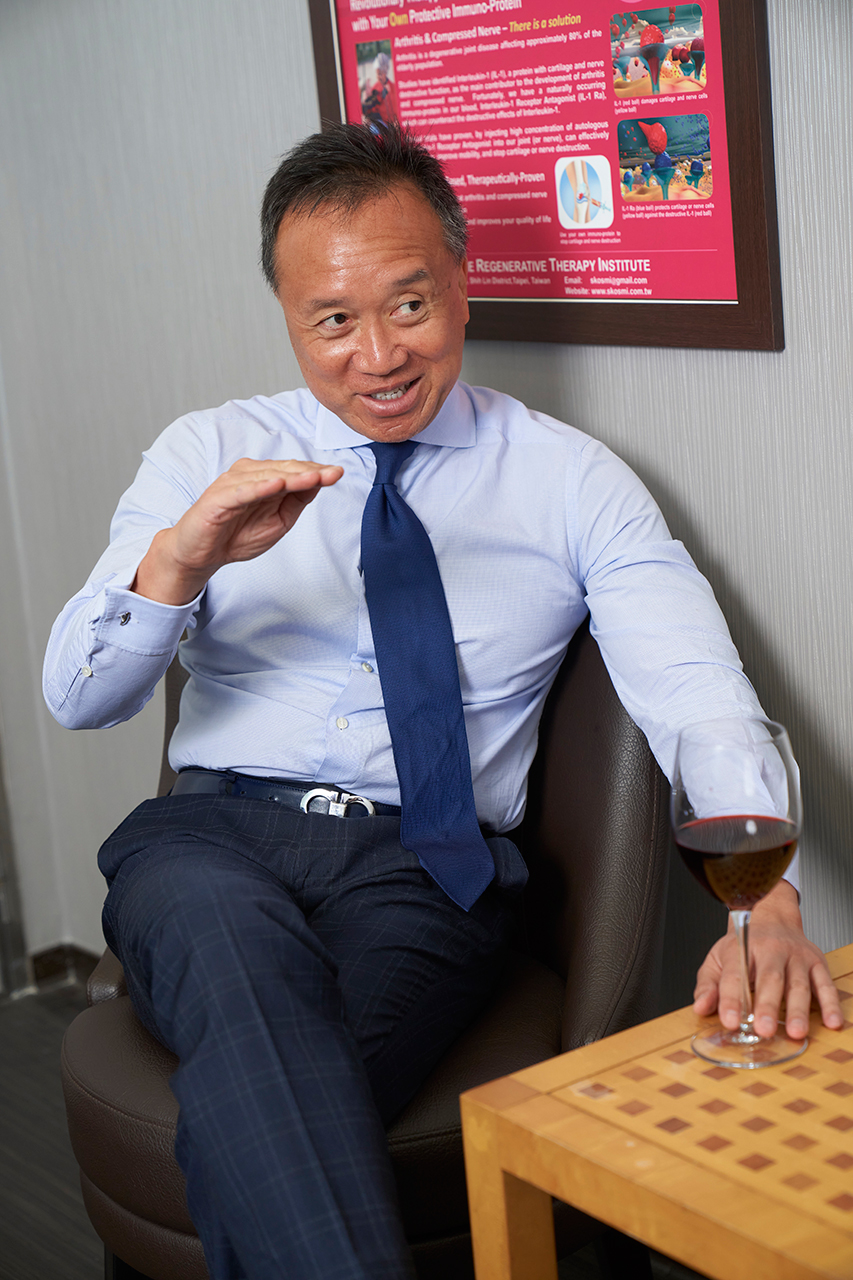
“與亞洲其他國家相比,台灣的骨科運動醫學水準如何?”
David 認為,日本在亞洲骨科運動醫學領域可能是最先進的。緊隨其後的是中國 (該國還將中醫納入其療法中)、台灣及韓國。這些國家代表了亞洲運動醫學領域中最好的國家。
“在下班時間,不在辦公室時,您個人的喜好是什麼?”
在大衛的世界中,他可愛的妻子和兩個女兒排在第一位–他享受家人的時光。他們都是精通馬術的人。大衛說,他這三位家庭成員騎馬就足夠了!他還喜歡與許多好朋友聚會,以及享受美食和美酒。他熱愛旅行,並希望在疫情大流行消退後重新上路。幸運的是,他喜歡與人交流和公開演講,這很不錯,因為他在工作時經常進行許多演講和學術研討。
“您可向對運動醫學和骨科領域感興趣的年輕人做任何建議嗎?”
David的建議是,您必須要熱愛運動,還必須熱愛生物學,然後對人體特別感興趣並努力學習; 諸如肌肉、韌帶、肌腱、骨骼結構及手術等主題是最相關和重要的。成為一名醫生並不容易,但這是一項有意義的職業,在這個職業中,您會認識並幫助許多的人。
到此,我們結束了對 David的採訪。韓偉教授是一個風度翩翩令人欽佩、且相當有趣的人。更重要的是他在這特殊的醫學領域中擁有最先進且淵博的知識。
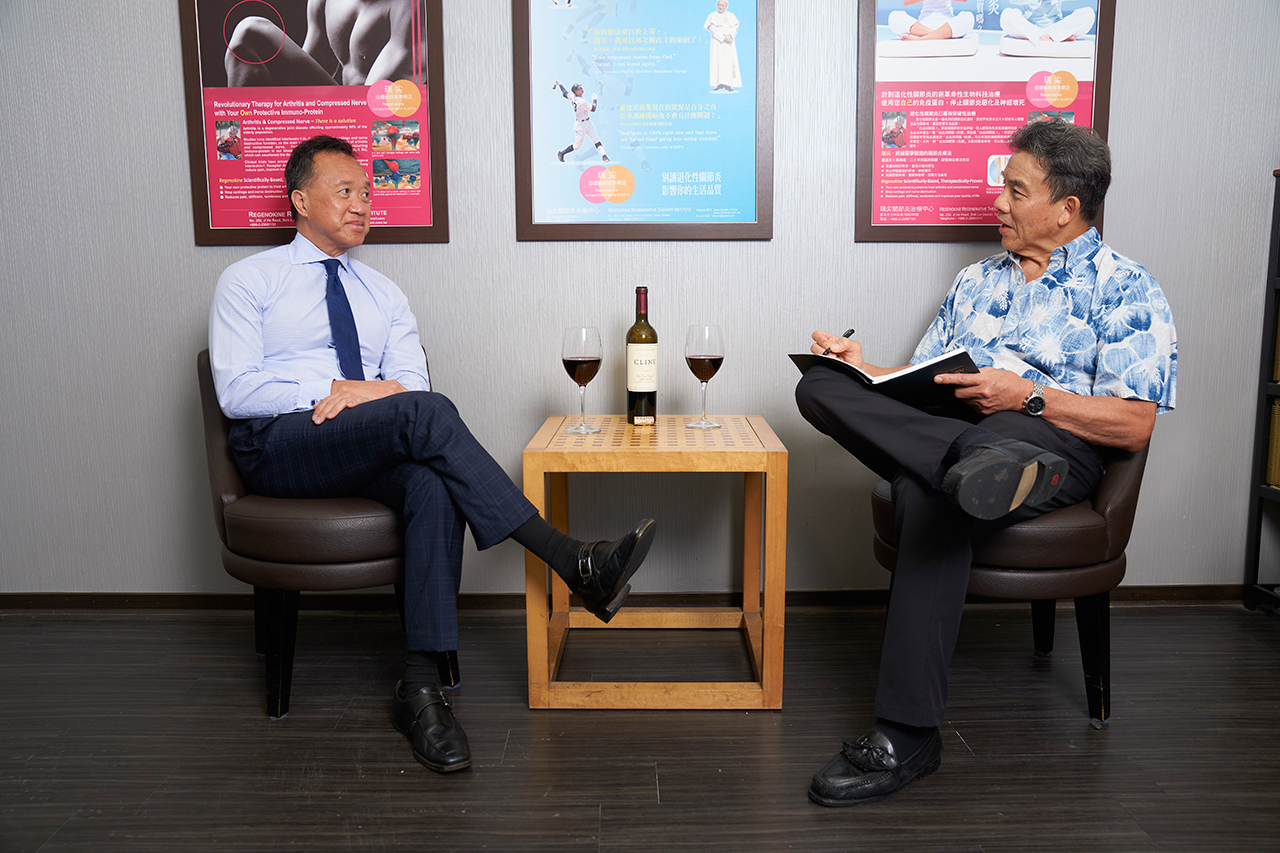
A Trailblazer in the Development of Taiwan Sports Medicine – Dr. David Hang
Anyone who is seriously involved with sports in Taiwan, no doubt, has at one time or another required the care and attention of the Shin Kong Orthopedic Sports Medicine Institute, located near both the Shin Kong Hospital and the Shilin Night Market. I am sitting with Dr. David Hang, the Founder and Director of the Orthopedic Sports Medicine Institute, to find out about his life and how he became a pioneer in the fields of orthopedic surgery and sports medicine in Taiwan. We begin immediately into an interesting interview of Dr. Hang.
“Please describe your childhood and adolescent years. And how did you decide to become a doctor?”
David was born in Taiwan, into a family of five generations of physicians and pastors. David mentions that while his family was comprised primarily of physicians, his family was also closely aligned with missionaries of the Presbyterian Church, therefore in each generation, a few family members are also expected to become pastors. David has two younger brothers who are dentists in the United States.
In 1974, David’s father, Dr. Yi-Shiong Hang (who was the Chief of Orthopedic Surgery at the National Taiwan University Hospital), was the first Asian orthopedic surgeon accepted to attend the Orthopedic Biomechanics Fellowship at Case Western Reserve University in Cleveland, Ohio. Case Western Reserve University is one of the most highly regarded learning institutions in the field of joint replacement. David moved with his family, first to Cleveland, Ohio, and then to Seattle, Washington; his father also trained at the University of Washington, before returning to Taipei in 1976. David attended middle school at Dominican School in Taipei, then returned to the States to complete high school in Seattle. He then attended the University of Washington Medical School and then did his orthopedic residency at the Rush Presbyterian St. Luke’s Medical Center in Chicago, Illinois, which is one of the foremost hospitals in the United States in the field of joint replacement and sports medicine. After his training in Chicago, he went to UCLA for his Sports Medicine and Arthroscopic Surgery Fellowship. He became one of the leading experts in arthroscopic surgery and was the only American orthopedic surgeon in Taiwan, who had been a team physician for UCLA.
In his youth, David thought that if he wasn’t going to become a doctor, he had ideas about becoming an astronaut, since it appeared to be fun and exciting, or being a diplomat, working in an embassy on behalf of your country, and having an opportunity to interact with people from other countries. Lucky for us, that David chose to follow in his family’s medical tradition!
“Why did you decide to return to Taiwan?”
David returned to Taiwan for two reasons. First, at the invitation of Mr. Eugene Wu, owner of Shin Kong Hospital. David was asked if he would return to Taipei and work with the Hospital to start a world-class “orthopedic sports medicine center” in Taipei. David said that it was a great challenge for him when he returned to Taiwan since he had already established his orthopedic surgery practice in the States. In fact, his working hours increased dramatically, and it took him more than once to pass his Taiwan Medical License since he had to re-learn all of the related English medical terminologies in Chinese. This demonstrates his dedication and perseverance in achieving his goals. The second reason would make any Chinese family proud, i.e., that he felt that as the oldest son in his immediate family, he wanted to return home to take care of his aging parents – a laudable demonstration of filial piety, which Chinese culture admires.
“What have been your major accomplishments with respect to the Shin Kong Orthopedic Sports Medicine Institute and other Sports Medicine in Taiwan?”
David’s goal in establishing the Shin Kong Orthopedic Sports Medicine Institute (SKOSMI) was to create an orthopedic sports medicine center which could provide care equal to or better than the standards of UCLA’s sports medicine center. Currently, his institute is staffed by orthopedic surgeons, physical therapists and athletic trainers, in a fully-equipped facility, including a gym, physical therapy rooms, hyperbaric oxygen therapy, and a hydrotherapy center (with swimming pool). In his Center, particular care is provided for fracture care, anti-arthritic therapy, arthroscopic surgery, sports injury therapy, regenerative medicine, and joint replacement. David stated that the key to his patient care (based on the principals of sports medicine) are to provide orthoscopic surgery to minimize pain and invasive procedures to the body, while accelerating recovery time through evidence-based rehabilitation, and retraining the damaged or affected areas, so that the athlete or patient can get back to close to 100% (or potentially even better than their pre-injury state). David stresses the importance of proper therapy (i.e., retraining the ligaments, tendons, muscles, and nerves), so the patient can regain maximum strength, agility, and flexibility in the affected area of the body.
David receives a sense of accomplishment when an athlete or patient comes to him with an injury, which has been diagnosed as being in the “no hope” category, and then being able to establish a comprehensive treatment plan or regimen (which may or may not include surgery) to set him or her on the road to full recovery and lift this person out of depression.
David is also the senior consultant and partner of the inventor, Professor Peter Wehling (Kobe Bryant’s physician from Germany) for Orthokine / Regenokine Therapy, which is administered through this Center (the only center in Asia offering Regenokine treatment). Regenokine is the revolutionary therapy utilizing your body’s own immuno-protein to stop cartilage and nerve destruction (thus stop osteoarthritis and nerve damage) as well as regeneration of ligament, muscle, and tendon tissue. Not only has this therapy helped patients such as Kobe and Pope John Paul II, but countless patients all over Asia.
Additionally, David helped to create the Taiwan Athletic Trainers’ Association and its licensing protocol. He is also the chairman for the Olympic anti-doping committee in Taiwan and has been involved with anti-doping efforts for sports since his return to Taiwan 20 years ago.
“What is the level of orthopedic sports medicine in Taiwan as compared to other countries in Asia?”
In David’s opinion, Japan is probably the most advanced and sophisticated in the field of orthopedic sports medicine in Asia. Following closely is China, which also integrates some traditional Chinese medicine practices into their therapies, Taiwan, and South Korea. But Taiwan has continued to make improvements. These countries represent the best in the field of Sports Medicine in Asia.
“What are your personal likes and interests in your off-hours, away from the office?”
In David’s universe, his lovely wife and two daughters come first – he enjoys his family time. They are all accomplished equestrians; David says that three in his family is enough! He also enjoys socializing with his many good friends, along with “subtle” fine dining and wine. He loves traveling and hopes to get back on the road once the pandemic subsides. Fortunately, he enjoys meeting people and public speaking, which is good since he makes many speeches and presentations in his line of work.
“Is there any advice that you would like to impart to young people and may have an interest in the field of Sports Medicine and Orthopedic Surgery?”
David’s advice is that you must love sports foremost, then you must also love biology, with a particular interest in the human body and studying diligently in topics like surgery, muscles, ligaments, tendons, bone structure, which are all very relevant and important. David stated that, “Being a doctor is not easy, but it is a rewarding career, in which you meet and help a lot of people!”
With that, we end our interview with Dr. David Hang, a completely knowledgeable, personable, and admirable person, in quite an interesting and important field of medicine.


